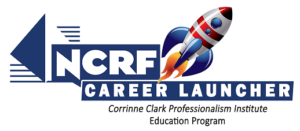
By Len Sperling
As we all know, practice is a vital and key component to attaining success while speed testing. However, most students during their studies reach points in their testing journey where they plateau, and passing tests becomes a daunting task. As this plateau continues, the danger is that students may start to spend more time and energy worrying about not passing any tests instead of focusing their energy on practice itself. A snowball effect to this dilemma can occur where the more a student struggles to pass tests, the less they practice. A line I have often used with students who reach this impasse is: “You worry about the practice; I’ll worry about the tests.” The point of my line is to help direct student energy and time towards quality practice and not the outcomes of speed tests. My contention is tests will eventually take care of themselves as long as students put in the required quality practice.
One of the keys to success for any student in a court reporting program is to have the discipline to put in the quality practice outside of class. In developing any skill, time on task is paramount. Although students realize this, they find it difficult to put in that needed quality practice. So the question becomes: What is the best way for students to plan and develop a solid practice plan required for progress?
I am going to explore one strategy to help make a successful practice plan. Financial planners like saying the following line: “People don’t plan to fail. They fail to plan.” This is the foundation of my strategy. At the end of your last practice session for the day, plan and document your practice for the next day. Besides time allotment and instructor-assigned practice, you should decide the type of dictation or other drills you plan to practice, and then pick your dictation and speeds. There are a number of reasons why I think this is a good strategy to use. I will outline a few.
1. Reflection
To make a good practice plan for the next day, you need to reflect on your current day’s work. What went well? Where did I struggle? Were there briefs or phrases or any key combinations that I hesitated on? Where did the errors occur in my practice? When I dropped, was there a specific reason? By reflecting on practice and answering these types of questions, your practice becomes purposeful and more effective. Although you want to attain both quality and quantity in practice, take quality over quantity any day.
2. Structure
Every student is different. However, I have found most students like structure and want as much as possible. By prepping for practice, you are providing yourself that structure and, thus, the chances of executing your designed practice for the next day becomes much higher. In essence, this allows you to schedule your priorities for the next day. Planning your practice the previous night allows you to easily document your practice and become much more organized. If practice material and speeds are already documented, it becomes easier to record error rates and areas of difficulty. This, in turn, provides a basis for future practice.
3. Motivation
It is hard for students who are not experiencing success at testing to stay motivated. By prepping for practice, your focus is on your next practice, not your next test. In my experience, students at times find it hard to start practicing. Procrastination sets in, which may unfortunately turn into a slippery slope. This is especially true on weekends and holidays. By having your practice already planned, it provides motivation to practice. A good day of practice hopefully will lead to another good day of practice.
I hope these small tips will help in developing good practice habits and, more importantly, change your mindset on how to get through your testing plateaus.
NCRA Member Len Sperling, MBA, CRI, is the chair of the Captioning and Court Reporting program at the Northern Alberta Institute of Technology, Edmonton, Alberta, Canada. He can be reached at lens@nait.ca.












